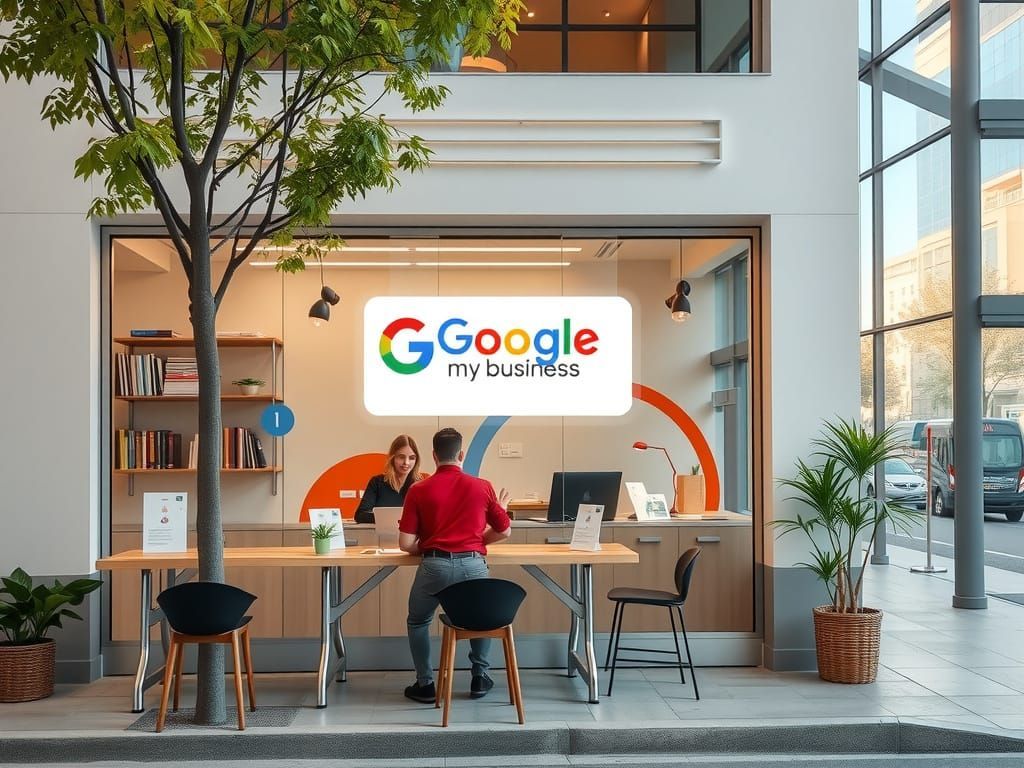12 Important SEO Statistics for 2025: Key Insights for Search Engine Optimization
As we approach 2025, understanding the evolving landscape of search engine optimization (SEO) is crucial for businesses looking to enhance their online presence. The continuous growth of digital marketing means that SEO remains a vital marketing channel for driving organic search traffic.
This article will delve into key SEO statistics for 2025, exploring various aspects such as mobile search, local SEO, technical SEO, and the impact of voice search on search engine strategies.
What Are the Key SEO Statistics for 2025?
Understanding SEO Performance Metrics
In 2025, it is projected that over 90% of online experiences will begin with a search engine. This highlights the importance of optimizing for search results to improve visibility and ranking. Key SEO performance metrics such as organic search traffic, click-through rates (CTR), and bounce rates will be critical for evaluating the effectiveness of SEO strategies.
SEO experts suggest that businesses should focus on user search behavior and adapt their strategies to meet the evolving preferences of search engine users. The importance of tracking these metrics cannot be overstated; they provide valuable insights into the effectiveness of different search terms and content strategies.
Trends in Organic Search Statistics
As we look at organic search statistics for 2025, it is essential to recognize that organic search continues to yield the best return on investment (ROI) compared to paid search. In fact, recent studies indicate that organic search has a conversion rate significantly higher than that of paid advertising.
This trend reinforces the necessity for businesses to invest in SEO by creating high-quality content that aligns with user search queries. Moreover, it is projected that over 70% of all clicks will go to the first page of search results, making it imperative for brands to secure top rankings through effective search engine optimization techniques.
Market Share Insights for SEO in 2025
The search engine market is anticipated to be dominated by Google, which is expected to hold over 90% of the market share in 2025. This underscores the need for businesses to understand Google’s search results algorithm and tailor their SEO strategies accordingly.
SEO statistics suggest that local search and mobile search will significantly influence market share dynamics, as more users are increasingly relying on their mobile devices for quick access to local businesses. Therefore, optimizing for both local and mobile SEO will be vital for businesses aiming to capture market share in an increasingly competitive digital landscape.
How Will Mobile Search Impact SEO in 2025?
Mobile Search Statistics to Know
Mobile search is projected to account for over 70% of all search traffic by 2025. This shift necessitates a fundamental change in how businesses approach SEO. With more users opting to use a search engine via their smartphones, it becomes crucial for brands to optimize their websites for mobile devices.
This includes ensuring fast loading times, responsive design, and mobile-friendly content. Statistics indicate that sites optimized for mobile search see significantly higher engagement rates and lower bounce rates, which can positively impact overall search rankings.
Optimizing for Mobile Search Results
To effectively optimize for mobile search results in 2025, businesses should focus on several key strategies. First, implementing a mobile-first indexing approach is essential, as Google primarily uses the mobile version of a site for indexing and ranking. This means that businesses must ensure their mobile site mirrors the content and functionality of their desktop site.
Additionally, utilizing structured data can enhance visibility in search results, making it easier for search engines to understand the content of a website. By investing in mobile optimization, businesses will not only improve their SEO performance but also enhance user experience significantly.
The Rise of Mobile Search Traffic
The rise of mobile search traffic has transformed the way businesses engage with their customers online. As smartphone usage continues to grow, so does the importance of local search optimization. Mobile search traffic often includes location-based queries, with users seeking immediate information about local businesses.
Statistics show that nearly 80% of mobile searches result in an action within one hour, highlighting the urgency and intent behind these searches. Businesses must leverage this trend by optimizing their local SEO strategies, ensuring that they appear prominently in local search results.
What Local SEO Statistics Should Businesses Focus On?
Understanding Local Business Search Queries
Local search has become an integral part of the SEO landscape, especially as users increasingly rely on search engines to find nearby businesses. In 2025, it is projected that 46% of all Google searches will be local.
This statistic underscores the importance of understanding local business search queries and tailoring content to meet these specific needs. Businesses must utilize relevant keywords and phrases that reflect local intent, ensuring they appear in search results when potential customers are looking for services in their area.
Key Local SEO Metrics for 2025
To effectively optimize for local SEO in 2025, businesses should focus on several key metrics. These include local search rankings, visibility in local pack results, and engagement rates from local search traffic. Additionally, monitoring search volume for local keywords will provide insights into the effectiveness of SEO strategies.
By analyzing these metrics, businesses can adjust their tactics to improve local visibility and attract more customers. Furthermore, investing in local backlinks and citations will enhance the authority of a business’s online presence, boosting its chances of ranking higher in local search results.
The Importance of Local Search Optimization
Local search optimization in 2025 is not just a trend; it is a necessity. As more consumers turn to search engines for immediate solutions, businesses that fail to optimize for local search may miss out on significant opportunities.
Local SEO statistics indicate that 78% of mobile searches for local businesses result in an offline purchase, emphasizing the direct correlation between effective local SEO and sales.
Therefore, businesses must prioritize local SEO strategies, including optimizing Google My Business listings, gathering positive customer reviews, and ensuring accurate NAP (name, address, phone number) information across all platforms.
What Are the Latest Trends in Technical SEO?
Technical SEO Statistics You Need to Know
Technical SEO is a critical component of an effective SEO strategy in 2025, with statistics indicating that over 50% of users abandon sites that take more than three seconds to load. This highlights the importance of site speed optimization and overall site performance.
Businesses must focus on technical aspects such as schema markup, XML sitemaps, and mobile optimization to enhance their search engine visibility. Moreover, investing in technical SEO can lead to improved crawlability for search engines, which is essential for achieving higher rankings in search engine results.
Impact of Technical SEO on Search Engine Results
The impact of technical SEO on search engine results cannot be overstated. As search engines continue to evolve, they prioritize user experience and site performance in their ranking algorithms.
Statistics reveal that websites with strong technical SEO practices rank higher and receive more organic traffic.
This means that businesses that invest in optimizing their technical SEO are more likely to see substantial improvements in their overall search engine performance.
Addressing issues such as broken links, duplicate content, and poor site structure will not only enhance user experience but also improve search rankings significantly.
Future of Technical SEO in 2025
Looking ahead to 2025, the future of technical SEO will likely focus on enhancing site performance and user experience further. As artificial intelligence (AI) and machine learning continue to shape search algorithms, businesses must adapt their strategies to align with these advancements.
Technical SEO will become increasingly centered around optimizing for voice search and mobile-first indexing, as these trends take precedence in the digital landscape. Businesses that stay ahead of these changes and invest in robust technical SEO practices will be best positioned to thrive in the competitive search engine market.
How Is Voice Search Changing SEO Strategies?
Voice Search Trends and Statistics
Voice search is revolutionizing how users interact with search engines, and by 2025, it is estimated that over 50% of all searches will be conducted via voice commands.
This significant shift in user behavior necessitates a re-evaluation of traditional SEO strategies. Voice search statistics indicate that users tend to ask questions in a more conversational manner, which means that optimizing for natural language processing and long-tail keywords is crucial.
Businesses must adapt their content to align with the way people speak, ensuring they are optimized for voice search queries that often begin with "what," "how," or "where."
Optimizing Content for Voice Search
To effectively optimize content for voice search in 2025, businesses should focus on creating clear, concise answers to common questions within their industry. Incorporating structured data and schema markup can help search engines better understand the content, improving chances of being featured in voice search results.
Additionally, businesses should prioritize mobile optimization, as many voice searches occur on mobile devices. By ensuring that their websites are mobile-friendly and easy to navigate, brands can enhance their visibility in voice search results and connect with users more effectively.
Voice Search's Impact on Digital Marketing
The impact of voice search on digital marketing strategies is profound. As more consumers turn to voice-activated devices for information, businesses must adapt their marketing channels to engage users effectively.
Voice search statistics show that nearly 30% of all voice search queries are related to local business information, emphasizing the need for strong local SEO practices. By integrating voice search optimization into their overall digital marketing strategies, businesses can capture a growing audience and drive more traffic to their websites.
Embracing these changes in search behavior will be crucial for achieving success in the evolving landscape of SEO.
We’re Ready When You Are
See What We Can Do For Your Business


At Leads Nurtured, our mission is clear: to empower business owners in expanding their ventures.
As a rapidly growing specialist in Lead Generation, we're dedicated to serving various regions.
Explore the areas we cater to here.
Solution
Company
Award-Winning
Lead Generation Agency
COTERSA Limited t/a Leads Nurtured, 3rd Floor, 86-90 Paul Street, London, EC2A 4NE, UK
is a registered company in England & Wales number 13111232
COTERSA Limited t/a Leads Nurtured. All Rights Reserved.
















